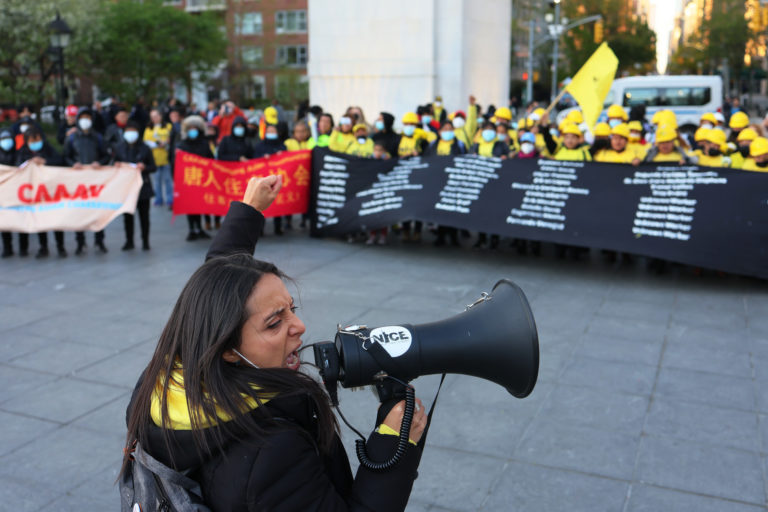
Andrew Strom is a union lawyer based in New York City. He is also an adjunct professor at Brooklyn Law School.
Andrew Strom is Associate General Counsel of SEIU Local 32BJ.
In the wake of several high profile incidents of police misconduct, there is growing support for proposals to require police officers to wear body cameras when they interact with the public. This call for body cameras has resonated because in several high profile cases, bystanders happened to catch the incidents on video. People have recognized the imbalance of power when police interact with the public, and they have recognized that body cameras promote police accountability by serving as a check against potential abuse of power.
While the consequences of police misconduct are obviously far more serious than the consequences of misconduct by workplace supervisors, recording interactions between supervisors and workers could similarly serve as a check on supervisors who misuse their authority. When workers try to unionize, employers often enlist their supervisors to make the case against unionization. But the argument that each individual worker is better off bargaining on her own rather than joining together with her co-workers is a tough sell, so supervisors often cross the line from lawful persuasion to unlawful threats.
The National Labor Relations Board’s reported decisions are full of cases where supervisors have threatened workers with reprisals if they unionize. The NLRB and the courts have found that these types of threats are inherently coercive – i.e. they have a tendency to make workers refrain from engaging in union activity. These threats are powerful because, as the Supreme Court has recognized in the sexual harassment context, a supervisor’s authority in the workplace means that “an employee generally cannot check a supervisor’s abusive conduct the same way that she might deal with abuse from a co-worker.” Workers may tell their co-workers about the threat, but if the threat is effective, the threatened worker is unlikely to file a charge with the NLRB. This is particularly true because the standard remedy when an employer threatens workers with reprisals for their union activity is simply an order prohibiting the employer from doing it again – workers do not receive any damages to compensate them for the threat.
The NLRB follows traditional hearsay rules, so it will not find a violation where the only evidence of a threat comes from a worker who heard about it second-hand. This means that the vast majority of threats never even see the light of day. One solution to this problem would be to require supervisors to turn on body cameras before they talk to workers about unionization. That way, when co-workers hear about the threats, they could ask the NLRB to subpoena the video. Even short of requiring supervisors to wear body cameras, the NLRB could address this problem by making it clear that workers have a right to press the record button whenever a supervisor starts talking with them about unionization. Right now, in many states it is illegal to record a conversation without the consent of all parties. The NLRB has not spoken clearly on this issue. Instead, it has decided these questions on a case-by-case basis, and it has suggested that a worker’s right to record workplace conversations depends upon whether the recording violates State law or whether the employer has a uniform rule against recording. It is time for the Board to announce a clear rule that workers have a right to record any conversation with a supervisor regarding unionization. If cameras can deter police misconduct, maybe they could also deter abuse of power at the workplace.






Daily News & Commentary
Start your day with our roundup of the latest labor developments. See all
December 19
Labor law professors file an amici curiae and the NLRB regains quorum.
December 18
New Jersey adopts disparate impact rules; Teamsters oppose railroad merger; court pauses more shutdown layoffs.
December 17
The TSA suspends a labor union representing 47,000 officers for a second time; the Trump administration seeks to recruit over 1,000 artificial intelligence experts to the federal workforce; and the New York Times reports on the tumultuous changes that U.S. labor relations has seen over the past year.
December 16
Second Circuit affirms dismissal of former collegiate athletes’ antitrust suit; UPS will invest $120 million in truck-unloading robots; Sharon Block argues there are reasons for optimism about labor’s future.
December 15
Advocating a private right of action for the NLRA, 11th Circuit criticizes McDonnell Douglas, Congress considers amending WARN Act.
December 12
OH vetoes bill weakening child labor protections; UT repeals public-sector bargaining ban; SCOTUS takes up case on post-arbitration award jurisdiction